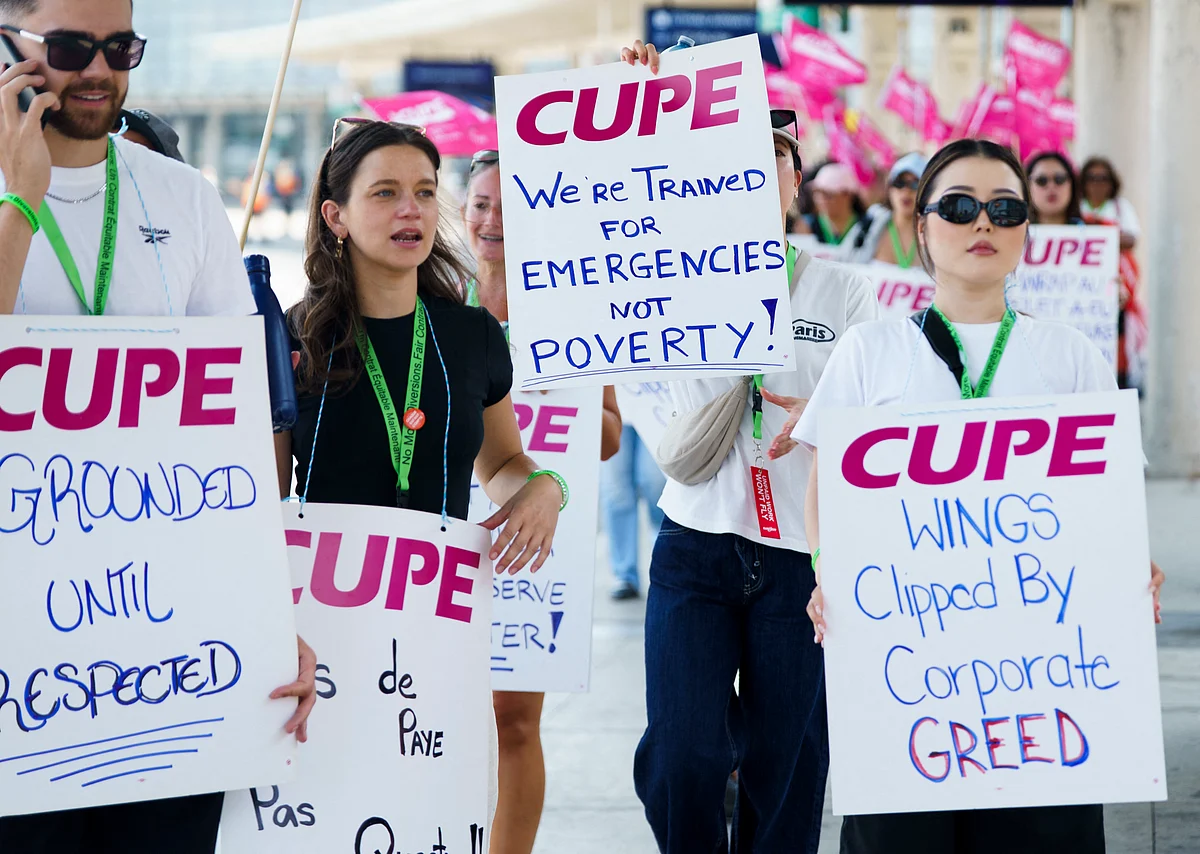After days of flight chaos, Air Canada strike ends as ‘tentative’ deal reached: The story so far
Dispute centred on demands for higher wages and compensation for unpaid ground duties

The Air Canada flight attendants’ strike ended with a tentative agreement on August 19, 2025, with both parties expected to finalise the deal to restore normalcy.
The strike disrupted travel for hundreds of thousands of passengers, grounding approximately 700 daily flights operated by Air Canada and Air Canada Rouge.
On August 16, 2025, the strike involving over 10,000 Air Canada workers represented by the Canadian Union of Public Employees (CUPE) marked the first such strike in 40 years.
Workers’ demands
The dispute centred on demands for higher wages and compensation for unpaid ground duties, such as boarding and deplaning.
CUPE estimated the unpaid work amounted to 35 hours of unpaid work per month per attendant.
Canadian Prime Minister Mark Carney expressed disappointment over the failure to reach an agreement after eight months of negotiations, emphasising the need for a swift resolution due to the disruption affecting “hundreds of thousands of Canadians and visitors.”
On August 19, Carney voiced support for equitable compensation for flight attendants, stating: “It is my hope that this will ensure flight attendants are compensated fairly at all times, while ending disruption for hundreds of thousands of Canadian families, workers, and visitors to Canada.”
Relief
Following the tentative agreement, he expressed relief, urging both parties to finalise a deal to restore normalcy.
Air Canada’s CEO, Michael Rousseau, described the airline’s offer as a 38% total compensation increase over four years, which he claimed would make Air Canada’s flight attendants the best-compensated in Canada.
He expressed amazement at CUPE’s defiance of a Canada Industrial Relations Board (CIRB) order declaring the strike unlawful, stating: “At this point in time, the union’s proposals are much higher than the 40%.
And so we need to find a path to bridge that gap.”
CEO defends his leadership
Rousseau stressed the need for flight attendants to return to work to resume operations, noting the airline’s commitment to repatriating stranded workers.
He defended his leadership, asserting that the current team was equipped to navigate the dispute.
BY THE NUMBERS
500,000: Number of passengers affected by Air Canada flight attendants’ strike, due to flight cancellations.
240: By August 18, approximately 240 flights were canceled due to CUPE’s refusal to comply with the CIRB’s back-to-work order.
$60 million: Estimated daily financial losses due to the strike
Refunds
The airline began a phased wind-down of operations on August 13 after CUPE issued a 72-hour strike notice, followed by Air Canada’s lockout notice to ensure an orderly shutdown.
Air Canada offered refunds, travel credits, or rebooking options on other airlines, though limited capacity during peak summer travel complicated rebooking efforts.
The airline suspended its third-quarter and full-year 2025 profit forecasts due to the strike’s impact, with shares dropping nearly 3%.
Economic impact
The strike’s broader economic impact prompted Jobs Minister Patty Hajdu to invoke Section 107 of the Canada Labour Code on August 17, ordering binding arbitration, though CUPE defied this, calling it “blatantly unconstitutional.”
The union’s persistence led to renewed negotiations on August 19, mediated by William Kaplan, resulting in a tentative agreement that included pay increases and at least 60 minutes of ground pay per flight.
Probe
The outcome saw Air Canada gradually resuming flights starting August 19, with full restoration expected to take a week or more.
The agreement awaits ratification by CUPE members, but it addresses key demands, particularly ground pay, aligning with industry trends seen at US carriers like Delta and American Airlines.
Hajdu announced a probe into unpaid work allegations in the airline sector, expected to conclude in six to eight weeks.
The resolution averted further economic damage, though passenger frustration lingered due to cancellations and rebooking challenges.
Sign up for the Daily Briefing
Get the latest news and updates straight to your inbox
Network Links
GN StoreDownload our app
© Al Nisr Publishing LLC 2026. All rights reserved.